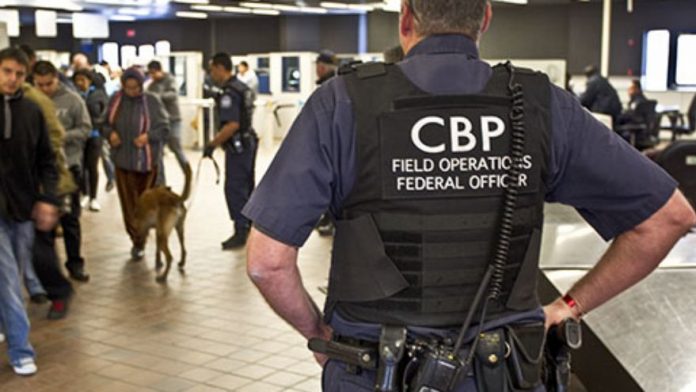
Some overtime now and then can be a good thing.
But long hours of overtime, over and over, can be just too much. Just talk to some Customs and Border Protection (CBP) officers – who say working almost two days in one is not unknown.
Here is Jorge LLanos, a veteran officer speaking as the National Treasury Employees Union (NTEU) chapter president in San Diego: “Our employees at the San Ysidro and Otay Mesa ports of entry work 16-hour shifts almost on a daily basis.” Thinking about his two boys, LLanos recalled missing “the majority of their birthdays [and] one of their graduations.”
CBP has a different story. It says officers generally volunteer for overtime in San Diego and don’t work 12 to 16 hours everyday.
But the larger issue is staffing.
Republicans and Democrats in the House and the Senate question the agency’s hiring process, which is long and slow. They raised the matter at a House hearing last week and will do so again on Tuesday in the Senate.
Rep. John Carter, R-Tex.,, chairman of the House Appropriations subcommittee on homeland security, said at the hearing last week, “We’re really concerned about CBP’s hiring problems,” which he said “have to be fixed.”
Rep. Lucille Roybal-Allard, Calif., the top Democrat on the House subcommittee, told the Federal Diary that she is working with Carter “to push CBP to hire the rest of these officers as quickly as possible.” But, she added, “it will be very difficult to find discretionary funding to hire the additional 2,107 officers” that CBP says it still needs.
Sen. John Hoeven, R-N.D., chairman of the Senate Appropriations subcommittee on homeland security, said in a statement on Saturday, “Unfortunately, CBP has been unable to hire and retain the level of officers that has been funded. The Committee has been pressing CBP to build a more effective and expeditious hiring pipeline to reduce the time it takes to get an officer to the front line.”
The response from CBP Commissioner R. Gil Kerlikowske: “Border Patrol agents and Customs and Border Protection officers fully trained and on the job, that right now that is the number-one priority. . .. I think we’ve submitted a realistic budget that will help us get there,” he told the House hearing.
Getting there is an urgent matter for the officers.
In a statement prepared for Tuesday’s Senate hearing, NTEU National President Tony Reardon said, “Both involuntary overtime – resulting in 12 to 15 hour shifts, day after day, for months on end – and involuntary work assignments far from home disrupt CBP Officers’ family life and destroys morale. Ongoing staff shortages contribute to CBP’s ranking at the very bottom of the Partnership for Public Service’s ‘Best Places to Work’ Survey – 314 out of 320 agency subcomponents.”
CBP officers generally are limited to $35,000 in annual overtime pay, but that can be waived. Dan Barra, speaking in his role as a NTEU chapter president at New York’s JFK airport, where he is an officer, said the overtime cap there was increased last year to $45,000. Making that much in overtime means lots of lost personal time.
“When my kids were younger,” Barra recalled, “I missed a lot of their games, the whole gamut.”
But CBP says 16-hour shifts are rare, at least at JFK, accounting for just over 1 percent of assignments in fiscal 2015.
Though union and management disagree on some points, everyone agrees that hiring more officers is the solution. But, apparently, it is not an easy solution for an agency that remains about 700 CBP officers short of the 2,000 additional positions already funded.
“Remember, we’ve had a lot of, you know, a lot of attrition,” Kerlikowske said.
Barra and Llanos say they would recommend being a CBP officer to someone seeking a career, but offered a sad caveat. “You will be a footnote on your family’s get-togethers,” LLanos said, “because you can’t show up.”
(c) 2016, The Washington Post · Joe Davidson

